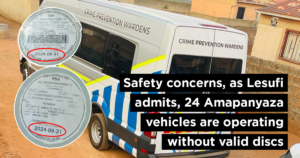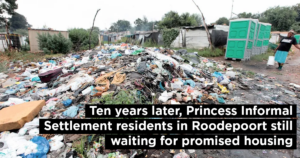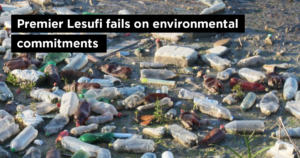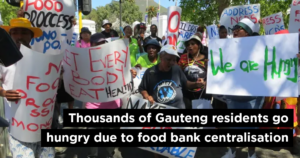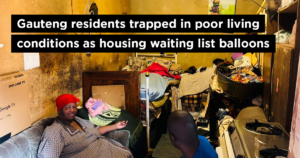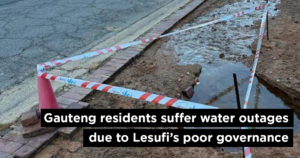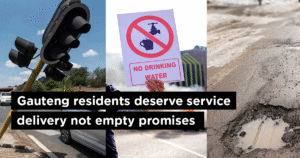Thousands of Gauteng residents cannot afford to buy data and have private WiFi to look for employment opportunities, access basic government services, and conduct research needed for their studies. Despite this, the Gauteng Department of e-Government denies residents access to the internet by failing to meet its targets of providing all residents in this province with access to the Gauteng Broadband Network (GBN).
According to the department’s annual report for the 2023/2024 financial year, only 14 out of 205 sites were provided with Wide Area Network (WAN), while only 25 out of 265 sites have been provided with Local Area Network (LAN). Furthermore, only 19 WiFi hotspots out of 265 were provided.
Some reasons for these targets not being met are delays in delivering bulk equipment for site build and long lead times for wayleave approvals.
Every year this department fails to meet these critical targets. Premier Lesufi and his predecessor, David Makhura, waxed lyrical about how they are bringing this province into the 4th Industrial Revolution. This can only be done if this government is serious about meeting its targets set for the rollout of the GBN.
Furthermore, the GBN network is reaching the end of its lifespan and needs urgent maintenance and upgrading. Earlier this year, the MEC for e-Government, Bonginkosi Dhlamini, admitted in a reply to the Democratic Alliance’s (DA) written questions that the GBN is facing a network failure with 70% of its equipment reaching the end of service by the end of December this year. To upgrade the GBN, around R700 million is needed.
The GBN plays a crucial role in connecting all the departments so that basic services can be delivered. One such element of basic service delivery is the e-petition system, which is not always working and forces our residents to travel into the GPL to submit the petition, which is costly.
The DA will submit questions to the MEC to determine exactly what measures will be put in place to ensure that the upgrading of the GBN does take place and how they intend to meet all the targets relating to the rollout of LAN and WAN sites in the province.
A DA government will immediately investigate why there are so many delays in completing the rollout of LAN, WAN, and Wi-Fi hotspots in the province. We will also allocate adequate funding needed to replace all the equipment that is reaching its life span ahead of the expiring date.
Access to the internet is crucial as it makes it easier to access education, contributes to economic growth, efficient government services, improved health care, and access to a global audience. Gauteng residents must not be denied such resources, which are key to their everyday lives.


